
Salvador Guillermo Allende Gossens was a Chilean physician and socialist politician, who served as the 28th president of Chile from 1970 until his death in 1973. As a democratic socialist committed to democracy, he has been described as the first Marxist to be elected president in a liberal democracy in Latin America.

The Socialist Party of Chile is a centre-left political party founded in 1933. Its historic leader was President of Chile Salvador Allende, who was deposed in a CIA-backed coup d'état by General Augusto Pinochet in 1973. The military junta immediately banned socialist, Marxist and other leftist political parties. Members of the Socialist party and other leftists were subject to violent suppression, including torture and murder, under the Pinochet dictatorship, and many went into exile. Twenty-seven years after the 1973 coup, Ricardo Lagos Escobar won the Presidency as the Socialist Party candidate in the 1999–2000 Chilean presidential election. Socialist Michelle Bachelet won the 2005–06 Chilean presidential election. She was the first female president of Chile and was succeeded by Sebastián Piñera in 2010. In the 2013 Chilean general election, she was again elected president, leaving office in 2018.

Juan Francisco Velasco Alvarado was a Peruvian general who served as the President of Peru after a successful coup d'état against Fernando Belaúnde's presidency in 1968. Under his presidency, nationalism, as well as left-leaning policies of state capitalism that addressed indigenous Peruvians, such as nationalization or agrarian reform were adopted. These policies were reversed after another coup d'état in 1975 led by his Prime Minister, Francisco Morales Bermúdez.
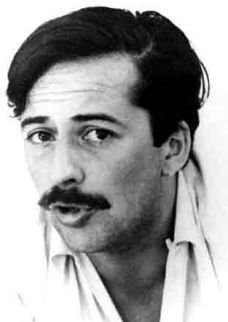
Miguel Humberto Enríquez Espinosa was a physician and a founder of the Chilean Marxist-Leninist urban guerrilla Movement of the Revolutionary Left (MIR), founded in 1965. He was General Secretary of the MIR between 1967 and his death in 1974.
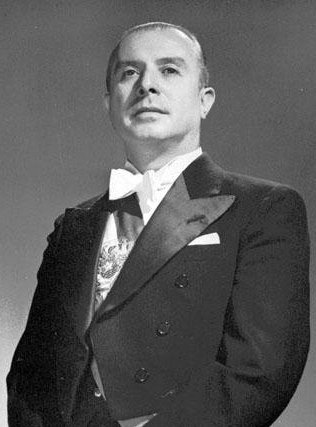
Gabriel Enrique González Videla was a Chilean politician and lawyer who served as the 24th president of Chile from 1946 to 1952. He had previously been a member of the Chamber of Deputies from 1930 to 1941 and senator for Tarapacá and Antofagasta from 1945 to 1946. A long-time member and leader in the Radical Party, he left the party in 1971 over its support for socialist president Salvador Allende. From 1973 until his death in 1980 he became an active collaborator and participant in the dictatorship of Augusto Pinochet, acting as vice president of the Council of State from 1976 onwards. As vice president of the council, he helped draft the current Chilean constitution of 1980.

Salvador Allende was the president of Chile from 1970 until his suicide in 1973, and head of the Popular Unity government; he was a Socialist and Marxist elected to the national presidency of a liberal democracy in Latin America. In August 1973 the Chilean Senate declared the Allende administration to be "unlawful," Allende's presidency was ended by a military coup before the end of his term. During Allende's three years, Chile gradually transitioned into a socialist state.

The Communist Party of Chile is a communist party in Chile. It was founded in 1912 as the Socialist Workers' Party and adopted its current name in 1922. The party established a youth wing, the Communist Youth of Chile, in 1932.

The Popular Unitary Action Movement or MAPU was a small leftist political party in Chile. It was part of the Popular Unity coalition during the government of Salvador Allende. MAPU was repressed during the dictatorship of Augusto Pinochet. In this period, some of its most radical members formed the Movimiento Juvenil Lautaro, whose leaders were political prisoners during the dictatorship and with the return to democracy. Another faction of the former members of the party joined the social democratic Party for Democracy in 1987.

The Radical Party was a Chilean political party. It was formed in 1863 in Copiapó by a split in the Liberal Party. Not coincidentally, it was formed shortly after the organization of the Grand Lodge of Chile, and it has maintained a close relationship with Chilean Freemasonry throughout its life. As such, it represented the anticlericalist position in Chilean politics, and was instrumental in producing the "theological reforms" in Chilean law in the early 1880s. These laws removed the cemeteries from the control of the Roman Catholic Church, established a civil registry of births and death in place of the previous recordkeeping of the church, and established a civil law of matrimony, which removed the determination of validity of marriages from the church. Prior to these laws, it was impossible for non-Catholics to contract marriage in Chile, and meant that any children they produced were illegitimate. Non-Catholics had also been barred from burial in Catholic cemeteries, which were virtually the only cemeteries in the country; instead, non-Catholics were buried in the beaches, and even on the Santa Lucia Hill in Santiago, which, in the 19th century, functioned as Santiago's dump.

Parliamentary elections were held in Chile on 4 March 1973, They resulted in a victory for the Confederation of Democracy, an opposition alliance led by the National Party and the Christian Democratic Party. However, they were unable to secure the necessary two-thirds majority in the Senate to remove President Salvador Allende from office.
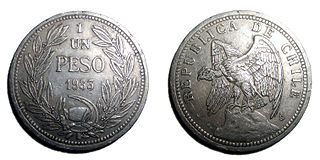
The Vuskovic Plan was the basis for the economic policy of the Popular Unity (UP) government of Chilean President Salvador Allende. It was drafted by and named after his first Economics Minister Pedro Vuskovic, who had worked before with the CEPAL. Although good results were obtained in 1970, hyperinflation made a comeback in 1972. By 1973, Chile was in shambles – inflation was hundreds of percents, the country had no foreign reserves, and GDP was falling.
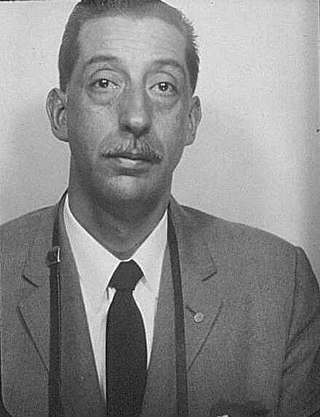
Edgardo Enríquez Frödden was a Chilean physician, academic and minister of education under the Salvador Allende government.
The La Ligua River is a river of Chile.
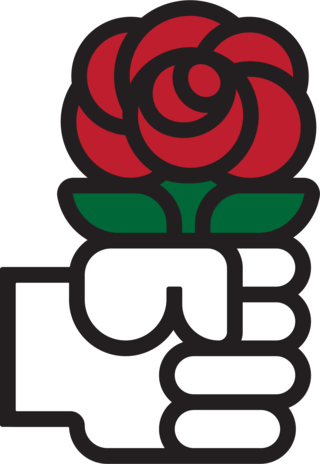
The Chilean Social Democracy Party (Spanish: Partido Socialdemocracia Chilena, until August 1973 Radical Left Party was a Chilean political party of centre to centre-left orientation, formed by dissident Radicals in 1971.
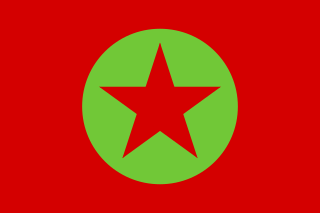
The MAPU Obrero Campesino was a leftist political party in Chile that was formed after a split of MAPU in March 1973. It claimed to represent the political legacy of Rodrigo Ambrosio, the principal founder of the original MAPU, who had deceased in May 1972.

The Chilean land reform was a process of land ownership restructuring that occurred from 1962 to 1973 in different phases. For much of the 20th century agriculture was one of the most backward sectors of Chilean economy. The land reform was initially supported by Chilean right, centre and left political parties plus the Catholic Church and the United States. After the 1973 Chilean coup d'état the ruling right-wing dictatorship initiated a counter-reform that reverted part of it and directed Chilean agriculture into a "neoliberal" model.
Events in the year 1973 in Chile.
The following lists events that happened during 1971 in Chile.
The Independent Popular Action was a Chilean political party, created on 27 April 1968, intended to be part of the Popular Unity and support the candidacy of Salvador Allende in the presidential election of 1970. Its main leader was Rafael Tarud.

Allendism is an ideological current that bases its positions and lines on what was the government of Salvador Allende, former president of Chile who, together with the Popular Unity, ruled the country until the coup d'état of 1973, perpetrated by Augusto Pinochet. Within the political spectrum it is located between the left-wing and the center left, basing its principles on democratic socialism, institutionalism and reformism. The followers of this current are called allendistas.

















